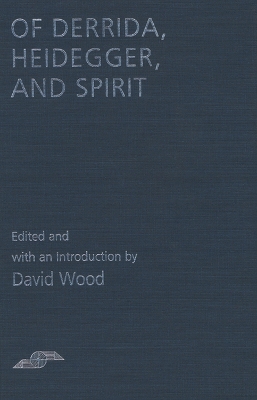Studies in Phenomenology and Existential Philosophy
2 total works
This book rejects the view that "time" has been erased from the philosophical agenda by its deconstruction from Nietzsche to Derrida, and argues, on the contrary, that deconstruction testifies to its enduring critical importance. After an opening chapter presenting Nietzsche's transvaluation of time as a protodeconstructive strategy, David Wood undertakes critical readings of major works on time by Husserl and Heidegger. He argues that for all their entanglement with such metaphysical values as unity, wholeness, certainty, and foundation, each makes a substantial contribution to our release from domination of "the ordinary concept of time." The task of transforming our thinking about time is linked, the author stresses, to questions of philosophical style, strategy, and linguistic representation.
The Deconstruction of Time will be of particular interest to students of continental philosophy and literary theory.
The Deconstruction of Time will be of particular interest to students of continental philosophy and literary theory.
Jacques Derrida's De l'espirit: Heidegger et la question is one of his most interesting and accessible later works. In it, Derrida attempts to come to terms with Heidegger's Nazi connections by way of an extended reflection on Heidegger's use of the term "Geist." In Of Derrida, Heidegger, and Spirit, David Wood presents a variety of powerful and distinctive responses to Derrida's book.

